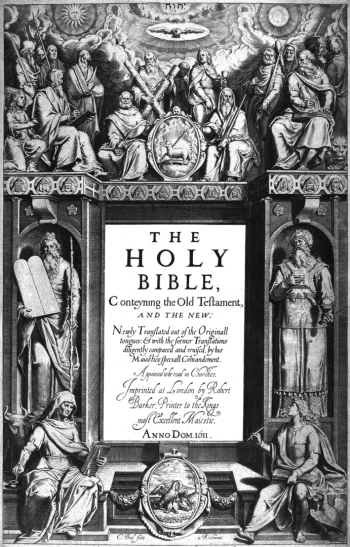1599 Geneva Bible (GNV)
The Geneva Bible: A Cornerstone of English Protestantism A Testament to Reform The 1599 Geneva Bible... Read More
The Authorized King James Version (AKJV), often referred to simply as the King James Version (KJV) or the Authorized Version (AV), is a cornerstone of English-speaking Christianity. Produced by a team of 47 scholars appointed by King James I of England, it was completed in 1611 and has since become one of the most influential and widely read English translations of the Bible.
The KJV emerged from a time of religious and linguistic upheaval. The English Reformation had introduced a variety of Bible translations, each with its own strengths and weaknesses. To unify the nation and provide a definitive English Bible, King James commissioned a new translation.
The scholars tasked with this monumental undertaking were drawn from the universities of Oxford, Cambridge, and Westminster. They possessed a deep knowledge of Hebrew, Greek, Latin, and English, as well as a profound understanding of theology and church history.

The KJV is based on the Masoretic Text for the Old Testament and the Textus Receptus for the New Testament. These underlying texts, while not without their challenges, provided the foundation for a translation that has endured for centuries.
One of the most striking features of the KJV is its literary beauty. The translators were masters of the English language, and their work is characterized by its poetic rhythm, majestic phrasing, and rich vocabulary. This literary elegance has contributed significantly to the KJV's enduring popularity.
The KJV has had a profound impact on English-speaking Christianity. Its theological tone reflects the Elizabethan and Jacobean era, with a strong emphasis on the sovereignty of God, the authority of Scripture, and the importance of the church. This theological framework has shaped the beliefs and practices of countless Christians.
While modern translations have gained popularity, the KJV continues to hold a special place in the hearts of many Christians. Its rich history, literary beauty, and theological depth make it a beloved classic. Many churches still use the KJV for liturgical purposes, and countless individuals continue to read and study it for personal devotion.
It is important to acknowledge that the KJV, like any translation, has its limitations. The underlying textual base has been refined through subsequent scholarship, and some of the language may be challenging for modern readers. Additionally, some critics argue that the KJV's emphasis on formal equivalence can sometimes obscure the meaning of the original text.
The Authorized King James Version is a remarkable achievement in the history of Bible translation. Its literary beauty, theological depth, and enduring popularity have secured its place as a timeless classic. While modern translations offer their own strengths, the KJV continues to inspire and enrich the lives of countless people.